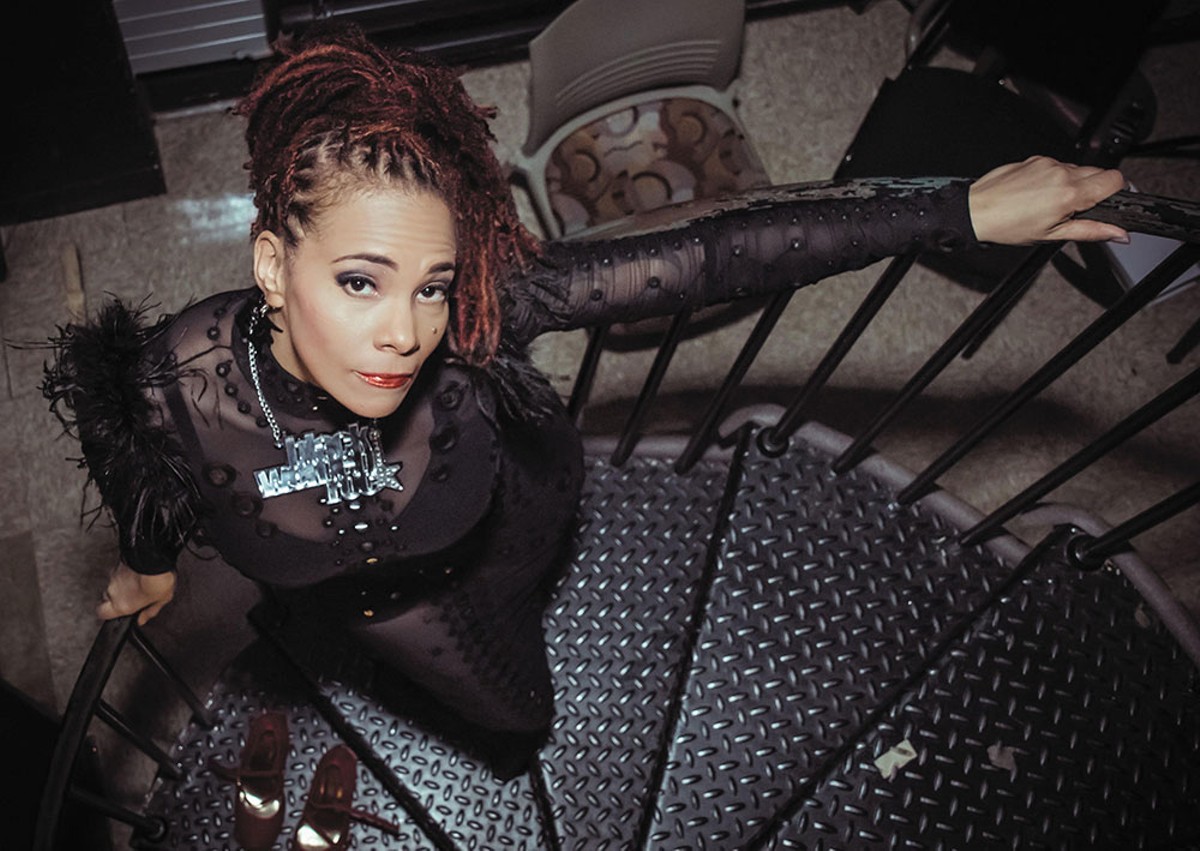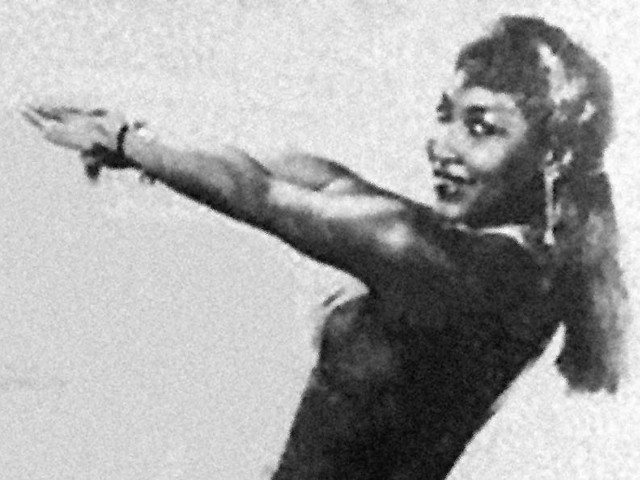Author jessica Care moore is reclining at home on her blue velvet, crystal-studded couch, and the ends of her locs are dyed the same navy blue and orange as the Detroit Tigers. She's preparing to travel to AWP, the Association of Writers & Writing Programs conference in San Antonio, where she has arranged a reading from We Want Our Bodies Back, her new book that drops on March 31. This is the first book she has released with a major publisher, Harper Collins' Amistad imprint, after years of self-publishing with her own company, Moore Black Press. She is the first Black woman poet to publish a book with Harper Collins since Gwendolyn Brooks. In other words, this is a big deal.
"I deserve this," moore says.
Plain and simple enough, these are three words we don't hear enough from women and definitely not directly from their mouths. Now, moore is entering a pivotal moment in her career where she gets to decide what kind of poet she wants to be, and she has learned how to harness energy for her own work in a way that she has historically given to others. Saul Williams, Ras Baraka, and Danny Simmons have all published books with Moore Black Press — and now it's her turn for the star treatment.
"I came into this as an institution builder," she says. "There was this sense of building an institution around the world. My home office [was] out of Atlanta, out of Detroit, out of Brooklyn, out of Harlem, because wherever I was, my company was," says moore.
That institution-building meant that, like many women writers before her, moore was both excited and expected to carry other people's dreams forward, as well as her own. moore has been writing, producing, and performing for at least two decades now and has reached a phase in her career where she wants to douse her own work in tender loving care. She came on the scene in the early '90s, moving from Detroit to Brooklyn and quickly falling in step with hip-hop artists like Yasiin Bey, Talib Kweli, and Common — artists she frequently collaborates with today. She has spent the last 13 years back at home in Detroit, working to expand her artistry beyond what she categorizes as "male-dominated microphones."
Forever the wordsmith, moore is aware that the word "institution" recalls a time when poets like Vivienne Eliot lived in an environment eclipsed and collapsed by the success of her husband, T.S. Eliot. moore says that Vivienne was unwillingly institutionalized while her husband claimed some of her poems as his own. Betty Davis, a remarkable musician and performer once known simply as Miles Davis' wife, is celebrated by moore at Black Women Rock — the signature event she's pausing this year to focus on this year's book run. Much of her creative process involves carving out and preserving a space for women like herself and drawing from women artists who came before her.
moore revels in living in a time and place where women can be heard directly without patriarchal intervention. "I gotta let this happen for me real quick," she says.
That self-preservation echoes throughout We Want Our Bodies Back. The poems are not ignorant of the societal, environmental, and emotional injustices that women encounter every day, but they think beyond that. The book is future-facing — summoning the kind of world that allows women to not only have something to look forward to, but to also live long enough to experience. moore charts her own journey of healing and invokes miraculous women who have elevated the collective conscience over the decades, including Ntozake Shange, Maya Angelou, Debi Thomas, Sonia Sanchez, and Betty Davis. The book is dedicated to Sandra Bland, the 28-year-old Chicago native who was found hanging in her jail cell after an ominous 2015 traffic stop in Texas, and each of the four sections are delineated by a different Nina Simone song. moore imagines a collective feminine body that is not just alive, but really living and absolutely doing it for herself.
"My book isn't about how men are supposed to treat us," she says. "My book is about how wonderful we're supposed to treat ourselves."
Even though she didn't know she was writing a book when she first began writing some of the poems that appear in We Want Our Bodies Back, moore wanted to make sure that the readers of her first major publishing debut knew she was a poet. If you're familiar with moore's work, then the book reads like a greatest hits — these new poems travel through themes of identity, race, politics, sex, ownership, and relationship with the same vibrant spirit that has become synonymous with moore. The book is brave and loud, but soft in the right places. The narrator's perspective vacillates between embodiment and disembodiment from poem to poem.
moore calls We Want Our Bodies Back her best-crafted book and is most looking forward to what people will do with it. She wants to see how the work she has done will inspire others to make something of their own. moore hopes to get the book in as many Detroit public schools and women's studies departments as possible.
"Hopefully it's a time stamp for what it was like to be a Black woman in this time of a tyrannical, sexist, disgusting president — also in the midst of movements against sexism and rape and harassment," she says. "We are the reason that good things happen in this country."
The We Want Our Bodies Back Detroit book release starts at 6 p.m. on Tuesday, March 17 at the Charles H. Wright Museum of African American History; 315 E. Warren Ave., Detroit; 313-494-5800; thewright.org. Tickets are $20 and provide access to the main program, a complimentary book for the book signing, and a cake and champagne reception.
We have a new events newsletter! Find out the best things to do in the area every Thursday morning in your inbox.







